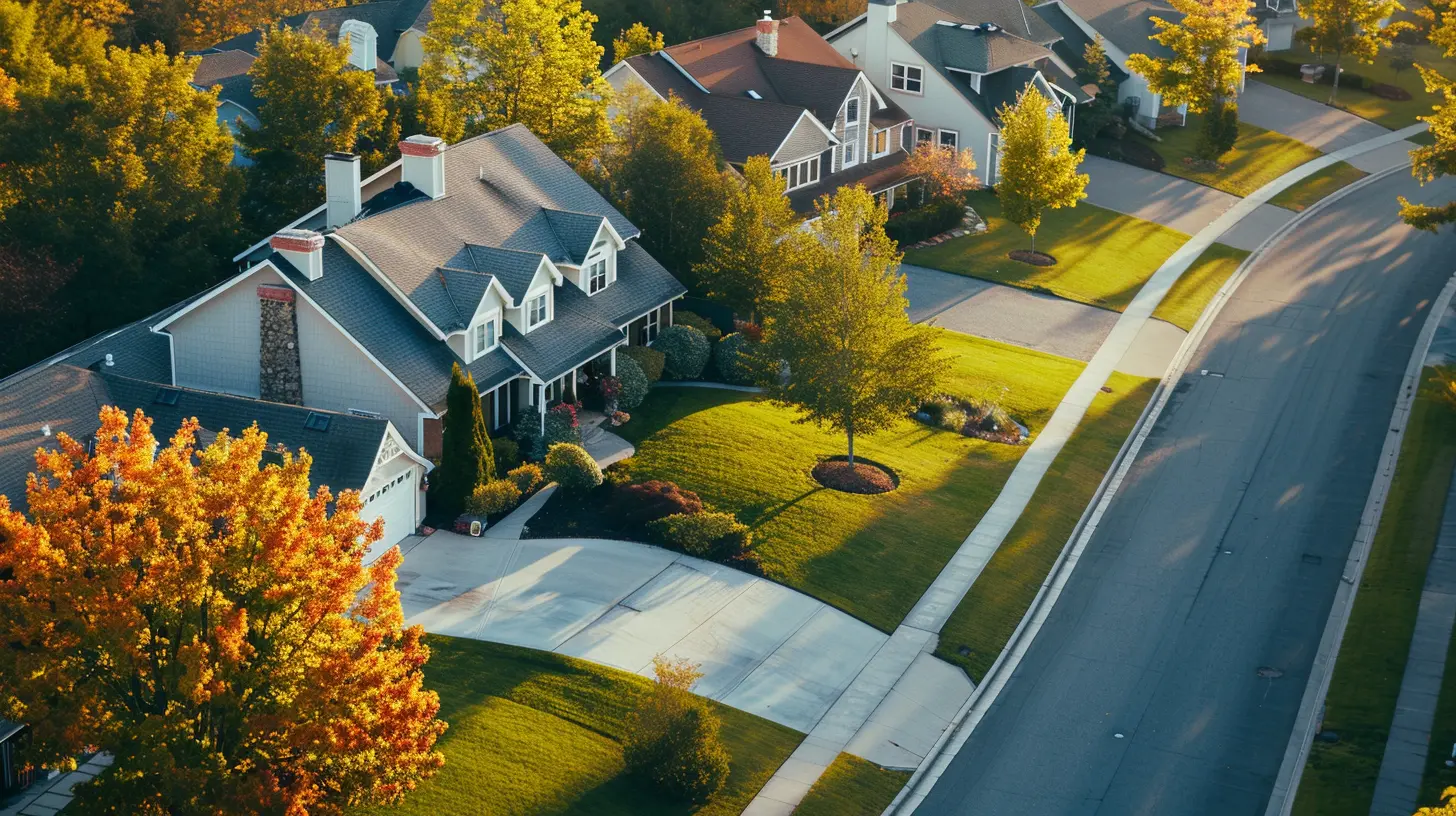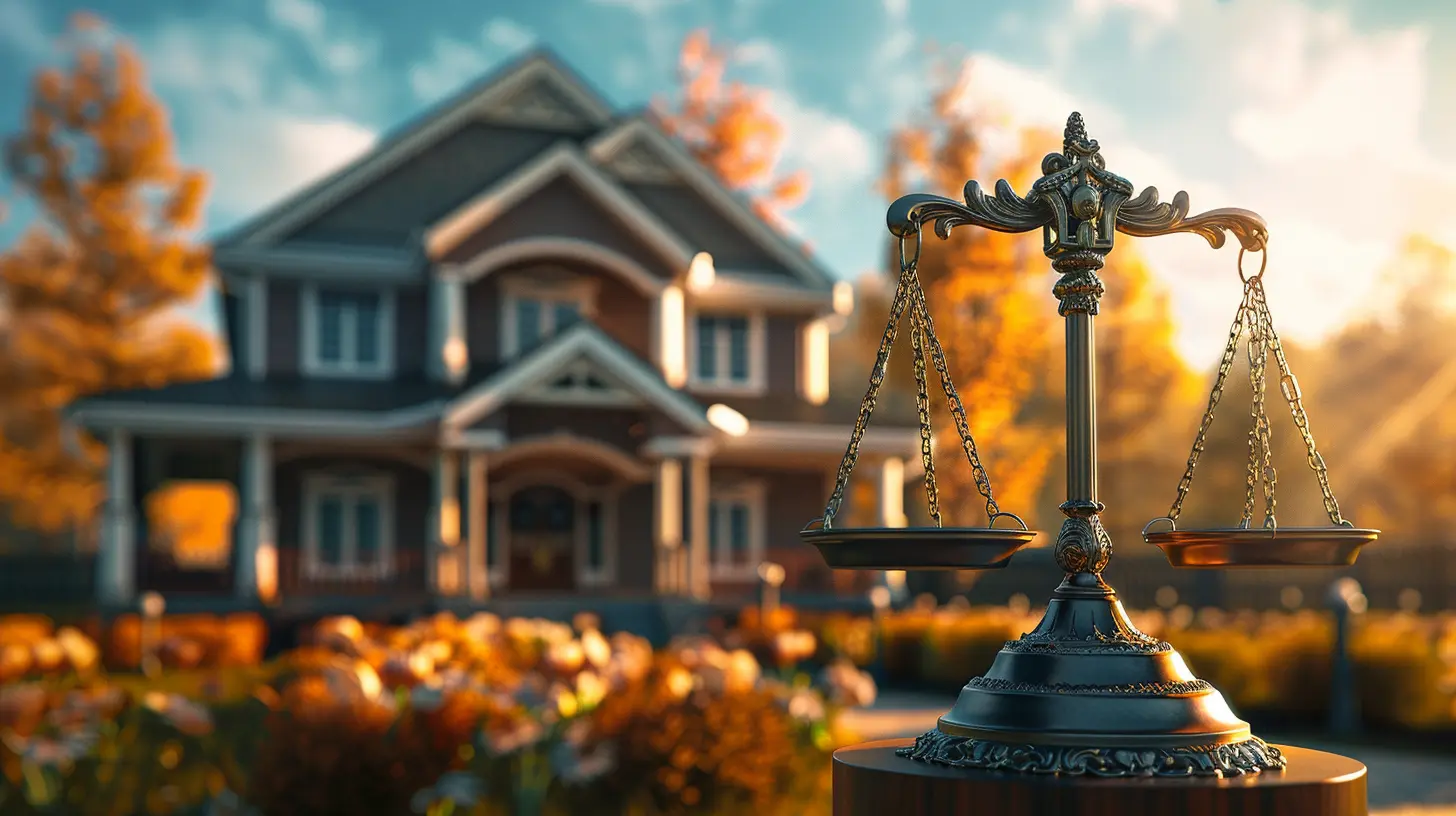Homeowners’ Association Rules: Legal Oversight and How They Affect You
10 August 2025
Buying a home in a community with a Homeowners' Association (HOA) can be a dream come true—or a nightmare, depending on how well you understand the rules. HOA rules can dictate everything from the color of your front door to where you park your car. But who enforces these rules? And what happens if you break them? Let’s dive deep into the legal oversight of HOAs and how their rules affect homeowners like you. 
What is a Homeowners' Association (HOA)?
A Homeowners' Association (HOA) is an organization that manages and regulates a residential community. These associations are common in condominiums, gated neighborhoods, and planned developments. When you purchase a home within an HOA jurisdiction, you're automatically a member—and with that membership comes responsibilities.HOAs typically handle:
- Maintenance of common areas (parks, pools, clubhouses, streets, landscaping, etc.)
- Setting and enforcing community rules
- Collecting fees (HOA dues)
- Resolving disputes between neighbors
Sounds good, right? Well, the devil is in the details—and those details are found in HOA rules. 
HOA Rules: The Fine Print That Governs Your Home
HOAs operate under a set of legal documents, primarily the Covenants, Conditions, and Restrictions (CC&Rs). These CC&Rs spell out what homeowners can and cannot do within the community. They typically cover:- Exterior Appearance: Want to paint your house bright pink? Not so fast—your HOA may have a specific color palette allowed in the neighborhood.
- Landscaping Rules: Thinking about installing artificial turf? Your HOA might require natural grass.
- Parking Restrictions: Many HOAs have strict rules about where you can park your car, banning street parking or requiring vehicles to be inside the garage.
- Pet Regulations: Some communities limit the size, breed, or number of pets you can have.
- Noise Restrictions: Late-night parties? Your HOA might have quiet hours enforced to keep the peace.
These rules help maintain property values and ensure uniformity in the neighborhood, but let's be honest—sometimes, they can feel downright controlling. 
Legal Oversight: Who Keeps HOAs in Check?
Despite their power, HOAs are not above the law. They are governed by:1. State Laws
Every state has different laws regulating HOAs. Some states provide strong oversight, while others allow HOAs to operate with minimal interference. For instance:- California's Davis-Stirling Act regulates how HOAs operate, ensuring transparency and fairness.
- Florida’s HOA laws require open board meetings and financial disclosures.
- Texas law gives homeowners certain rights to challenge HOA decisions.
Understanding your state’s specific regulations is crucial if you ever find yourself in conflict with your HOA.
2. Federal Laws
Even though state laws primarily regulate HOAs, some federal laws override HOA restrictions. These include:- Fair Housing Act (FHA): HOAs cannot discriminate against homeowners based on race, religion, gender, disability, or family status.
- Americans with Disabilities Act (ADA): If you have a disability, some HOA rules—such as restrictive parking regulations—cannot prevent you from making reasonable modifications.
3. HOA Governing Documents
Each HOA has its own bylaws, which dictate how it operates, including elections, meetings, and enforcement policies. If you feel your HOA is acting unfairly, checking the governing documents is the first step toward defending your rights.
What Happens If You Violate HOA Rules?
Breaking HOA rules can lead to various consequences, depending on the violation's severity and the HOA's enforcement policies. Here’s what you might face:1. Warning Notices
Most HOAs start with a written warning. This gives you a chance to correct the issue before further action is taken.2. Fines and Penalties
HOAs have the power to issue monetary fines for non-compliance. If you ignore them, they can accumulate over time—which could lead to bigger financial headaches.3. Legal Action
If fines go unpaid or you continue to violate the rules, the HOA can take legal action against you. In extreme cases, this can mean:- Liens on your property (which could make it difficult to sell your home)
- Lawsuits for non-compliance
- Foreclosure (in rare cases where unpaid dues accumulate significantly)
4. Restricted Access to Amenities
Some HOAs revoke access to community pools, gyms, and other amenities if you fail to follow the rules or pay your dues.Can You Fight HOA Rules?
Yes! While HOAs have authority, homeowners still have rights. If you believe a rule is unjust or incorrectly enforced, here’s what you can do:1. Request a Rule Change
HOA rules aren’t set in stone. Homeowners can petition for changes—especially if a rule is outdated, unfair, or overly restrictive.2. Attend HOA Meetings
Don’t sit on the sidelines! Attending HOA meetings gives you a voice in community decisions. The HOA board is elected by homeowners—so make sure you vote for representatives who reflect your interests.3. File a Formal Complaint
If you believe the HOA is violating its own rules or acting unfairly, file a complaint with the board. Document everything to strengthen your case.4. Seek Mediation or Legal Action
If disputes escalate, some states require mediation before legal action. If necessary, you can take your HOA to court—but legal battles can be costly.Are HOAs Worth It? The Pros and Cons
Before buying a home in an HOA community, weigh the pros and cons:✅ Pros:
✔ Well-maintained neighborhoods with higher property values✔ Access to shared amenities (pools, gyms, parks, etc.)
✔ Enforced community standards to prevent neglect
❌ Cons:
❌ Monthly or annual HOA fees, even if you don’t use the amenities❌ Strict rules that limit personal freedoms
❌ Potential for fines, disputes, or legal issues
At the end of the day, HOAs are a double-edged sword. If you prefer a uniform, well-kept neighborhood and don’t mind following rules, an HOA community might be perfect. But if you value personal freedom over uniformity, an HOA might feel like a constant battle against bureaucracy.
Final Thoughts
Homeowners' Association rules are designed to maintain order and property values, but they can sometimes feel intrusive. Before buying into an HOA community, read the CC&Rs carefully, understand your state’s HOA laws, and get involved in the decision-making process. After all, it’s your home—don’t let the fine print surprise you.all images in this post were generated using AI tools
Category:
Real Estate LawsAuthor:

Cynthia Wilkins
Discussion
rate this article
1 comments
Rylan McWilliams
Homeowners' Association rules can feel restrictive but are essential for community harmony. Understanding them helps homeowners navigate potential conflicts effectively.
August 27, 2025 at 12:30 PM

Cynthia Wilkins
Thank you for your insightful comment! You're absolutely right—while HOA rules may seem limiting, they play a crucial role in maintaining community standards and preventing conflicts. Understanding them is key for harmonious living.


